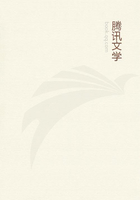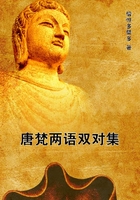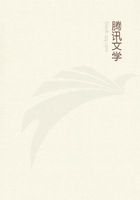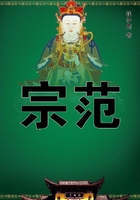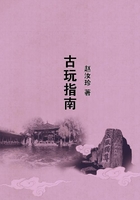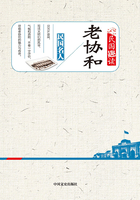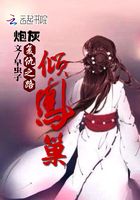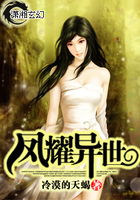How antiquity influenced the visual arts, as soon as the flood of barbarism had subsided, is clearly shown in the Tuscan buildings of the twelfth and in the sculptures of the thirteenth centuries.In poetry, too, there will appear no want of similar analogies to those who hold that the greatest Latin poet of the twelfth century, the writer who struck the keynote of a whole class of Latin poems, was an Italian.We mean the author of the best pieces in the so-called 'Carmina Burana.' Afrank enjoyment of life and its pleasures, as whose patrons the gods of heathendom are invoked, while Catos and Scipios hold the place of the saints and heroes of Christianity, flows in full current through the rhymed verses.Reading them through at a stretch, we can scarcely help coming to the conclusion that an Italian, probably a Lombard, is speaking; in fact, there are positive grounds for thinking so.To a certain degree these Latin poems of the 'Clerici vagantes' of the twelfth century, with all their remarkable frivolity, are, doubtless, a product in which the whole of Europe had a share; but the writer of the song 'De Phyllide et Flora' and the 'Aestuans Interius' can have been a northerner as little as the polished Epicurean observer to whom we owe 'Dum Diana vitrea sero lampas oritur.' Here, in truth, is a reproduction of the whole ancient view of life, which is all the more striking from the medieval form of the verse in which it is set forth.
There are many works of this and the following centuries, in which a careful imitation of the antique appears both in the hexameter and pentameter of the meter and in the classical, often myth- ological, character of the subject, and which yet have not anything like the same spirit of antiquity about them.In the hexametric chronicles and other works of Guglielmus Apuliensis and his successors (from about 1100), we find frequent trace of a diligent study of Virgil, Ovid, Lucan, Statius, and Claudian; but this classical form is, after all, a mere matter of archaeology, as is the classical subject in compilers like Vincent of Beauvais, or in the mythological and allegorical writer, Alanus ab Insulis.The Renaissance, however, is not a fragmentary imitation or compilation, but a new birth; and the signs of this are visible in the poems of the unknown 'Clericus' of the twelfth century.
But the great and general enthusiasm of the Italians for Classical antiquity did not display itself before the fourteenth century.For this a development of civic life was required, which took place only in Italy, and there not till then.It was needful that noble and burgher should first learn to dwell together on equal terms, and that a social world should arise which felt the want of culture, and had the leisure and the means to obtain it.But culture, as soon as it freed itself from the fantastic bonds of the Middle Ages, could not at once and without help find its way to the understanding of the physical and intellectual world.It needed a guide, and found one in the ancient civilization, with its wealth of truth and knowledge in every spiritual interest.Both the form and the substance of this civilization were adopted with admiring gratitude; it became the chief part of the culture of the age.The general condition of the country was favourable to this transformation.The medieval empire, since the fall of the Hohenstaufen, had either renounced, or was unable to make good, its claims on Italy.The Popes had migrated to Avignon.Most of the political powers actually existing owed their origin to violent and illegitimate means.The spirit of the people, now awakened to self-consciousness, sought for some new and stable ideal on which to rest.
And thus the vision of the world-wide empire of Italy and Rome so possessed the popular mind that Cola di Rienzi could actually attempt to put it in practice.The conception he formed of his task, particularly when tribune for the first time, could only end in some extravagant comedy; nevertheless, the memory of ancient Rome was no slight support to the national sentiment.Armed afresh with its culture, the Italian soon felt himself in truth citizen of the most advanced nation in the world.
It is now our task to sketch this spiritual movement, not indeed in all its fullness, but in its most salient features, and especially in its first beginnings.
The Ruins of Rome Rome itself, the city of ruins, now became the object of a holly different sort of piety from that of the time when the 'Mirabilia Roma'
and the collection of William of Malmesbury ere composed.The imaginations of the devout pilgrim, or of the seeker after marvels and treasures, are supplanted in contemporary records by the interests of the patriot and the historian.In this sense we must understand Dante's words, that the stones of the walls of Rome deserve reverence, and that the ground on which the city is built is more worthy than men say.The jubilees, incessant as they were, have scarcely left a single devout record in literature properly so called.The best thing that Giovanni Villani brought back from the jubilee of the year 1300 was the resolution to write his history which bad been awakened in him by the sight of the ruins of Rome.Petrarch gives evidence of a taste divided between classical and Christian antiquity.He tells us how often with Giovanni Colonna he ascended the mighty vaults of the Baths of Diocletian, and there in the transparent air, amid the wide silence with the broad panorama stretching far around them, they spoke, not of business or political affairs, but of the history which the ruins beneath their feet suggested, Petrarch appearing in these dialogues as the partisan of classical, Giovanni of Christian antiquity; then they would discourse of philosophy and of the inventors of the arts.How often since that time, down to the days of Gibbon and Niebuhr, have the same ruins stirred men's minds to the same reflections!

